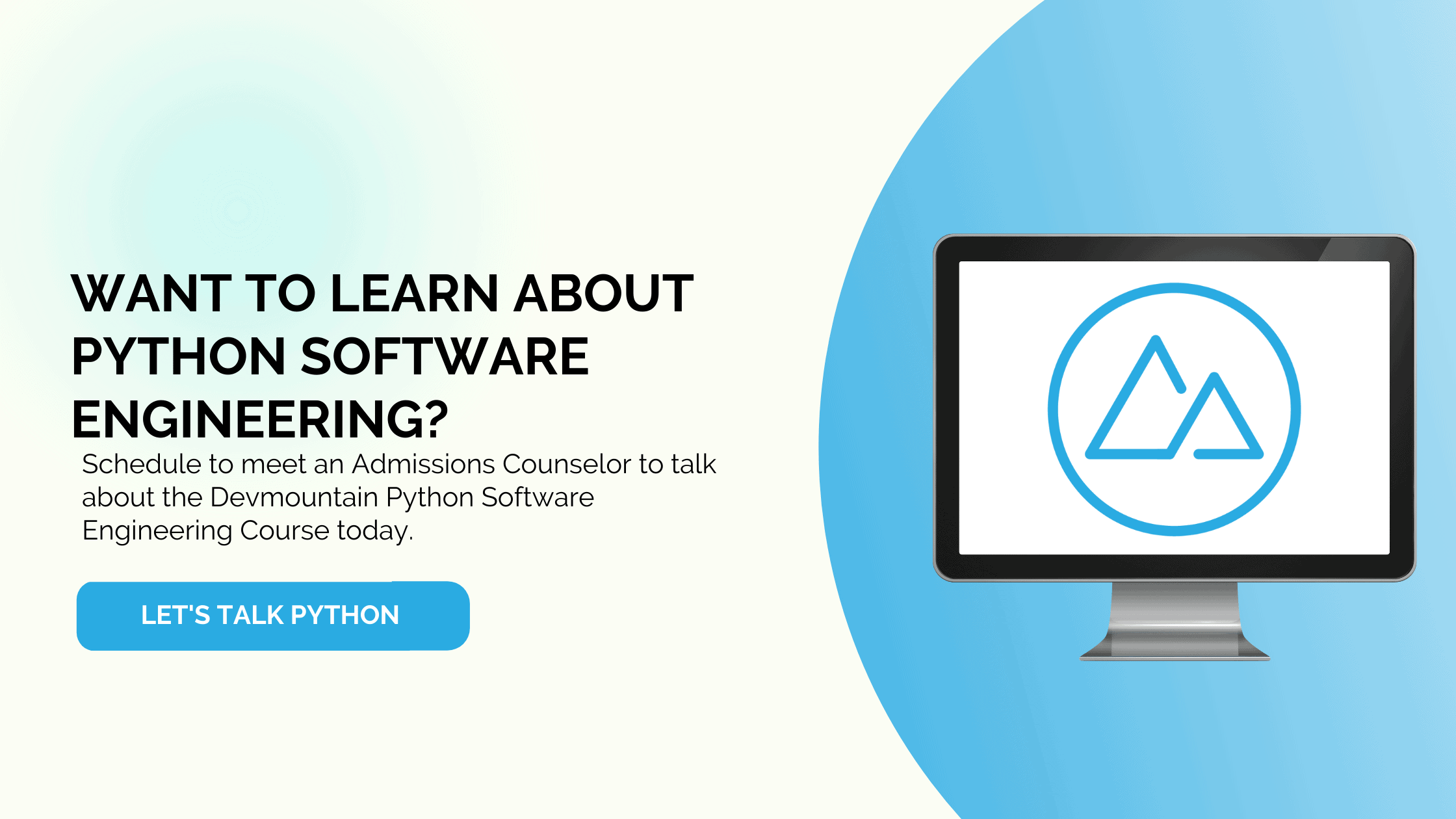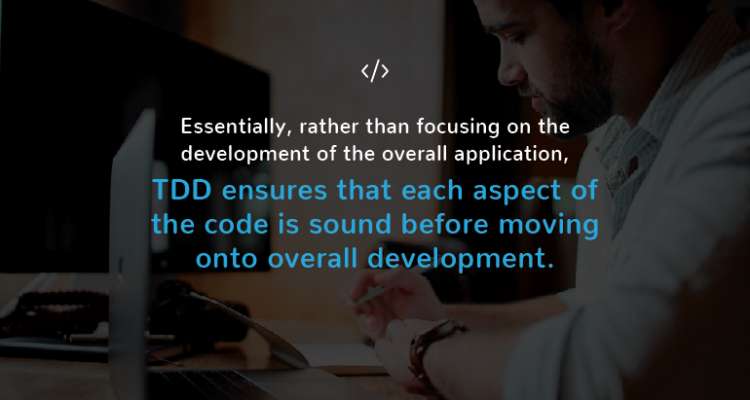10 Best Coding Books for Beginners
When looking for the best books to learn programming, one question to ask is this: What are programmers reading right now? These ten books are selected from a variety of Devmountain instructors and mentors, Amazon’s bestsellers in its programming category, and based on recommendations from popular coding blogs. Some of these books are new, and others are tried and true favorites among newbie and experienced programmers. Enjoy our list of ten best programming books for beginners.
- The Self-Taught Programmer: The Definitive Guide to Programming Professionally by Cory Althoff
- Make Your Own Neural Network by Tariq Rashid
- Managing Humans: Biting and Humorous Tales of a Software Engineering Manager by Michael Lopp
- The Pragmatic Programmer: From Journeyman to Master by Andrew Hunt and David Thomas
- Learning JavaScript Design Patterns by Addy Osmani
- The Art of Invisibility: The World’s Most Famous Hacker Teaches You How to Be Safe in the Age of Big Brother and Big Data by Kevin Mitnick and Robert Vamosi
- Clean Code: A Handbook of Agile Software Craftsmanship by Robert C. Martin
- Hacking: The Art of Exploitation, 2nd Edition by Jon Erickson
- Code: The Hidden Language of Computer Hardware and Software by Charles Petzold
- JavaScript for Kids: A Playful Introduction to Programming by Nick Morgan
Short summaries of each of these books can be found below:
10. JavaScript for Kids: A Playful Introduction to Programming
by Nick Morgan
Don’t let the title stop you. Whether you’re 10 or 110, this book can be a fun way to start learning how to code. This book doesn’t talk down to its audience, so no matter your age, if you’re looking for a relaxed and enjoyable introduction to JavaScript, this book is for you. Learn the basics and start exciting projects, all the while accompanied with fun visuals and simple explanations.
9. Code: The Hidden Language of Computer Hardware and Software
by Charles Petzold
Petzold is one of Microsoft’s Seven Windows Pioneers and has been writing about programming since 1984. First published in 2000, his book about code itself is a perennial favorite in the coding world thanks to its readable explanation of how programming and code are built into the fabric of everyday life. Petzold explains coding and assembly language for a general audience using familiar concepts such as Braille and Morse code. Better still, the book is illustrated, helping even those who don’t consider themselves code-savvy to follow along through the whole thing.
8. Hacking: The Art of Exploitation, 2nd Edition
by Jon Erickson
At its most basic, hacking is simply the art of problem-solving. Sometimes a problem calls for an unconventional solution, and sometimes that solution involves exploiting holes in someone else’s programming. Readers can gain an overview of the world of the best computer programming books from the hacker’s perspective, including such techniques as hijacking network communications and exploiting weaknesses in cryptography. Using the included diagrams and easy-to-follow text, readers can try their hands at a variety of existing hacking techniques.
7. Clean Code: A Handbook of Agile Software Craftsmanship
by Robert C. Martin
The expression “just because you can, doesn’t mean you should,” is all too applicable to bad coding. Sure, it might function, but messy code will inevitably make more work for someone else – maybe even yourself! Clean Code: A Handbook of Agile Software Craftsmanship trains with examples, so be prepared to do more than just read about helpful tips and tricks. Not only will you learn what constitutes good code, Martin includes portions of code for analysis, helping you further your understanding of good and bad techniques. While the code you will be inspecting is primarily Java-based, the principles you will learn in this book can be applied to any coding language.
6. The Art of Invisibility: The World’s Most Famous Hacker Teaches You How to Be Safe in the Age of Big Brother and Big Data
by Kevin Mitnick and Robert Vamosi
Mitnick, the author of the bestseller Ghost in the Wires, calls himself “the world’s most famous hacker.” His hacking career began at age 13 when he hacked a punch card system to ride the bus around Los Angeles for free. A former black hatter wanted by the FBI, he spent five years in prison for wire fraud and other crimes from 1995-2000. Mitnick now teaches the general public about invisibility in the age of Big Data. Those who are new to programming can follow along with the simple, step-by-step advice presented in this book. For more advanced readers, Mitnick and Vamosi present “elite” privacy hacks.
5. Learning JavaScript Design Patterns
by Addy Osmani
Design patterns are useful in all languages and all code bases. If you don’t have a fundamental understanding of design patterns, this programming book is a great primer to help you start writing better code. At any given moment, someone struggles with the same software design problems you have. And, chances are, someone else has already solved your problem. Learning JavaScript Design Patterns shows you the tried-and-true, road-tested patterns used by developers.
4. The Pragmatic Programmer: From Journeyman to Master
by Andrew Hunt and David Thomas
Originally released in 1999, this book has been a consistent bestseller among programmers, as well as a university coursebook. The material stays fresh by weaving in short stories and anecdotes as it provides valuable advice for software developers. When it was released, this book also helped popularize a number of coding terms and expressions. How is this relevant to you? Well, a new edition – The Pragmatic Programmer: your journey to mastery – will be released in September 2019 for the book’s 20th anniversary, complete with extensive overhaul to the source material. If the original was good, this is better. Not only is it updated to reflect the new realities of tech – about a third of the book is entirely new information – but the rest of the text has been edited for clarity.
3. Managing Humans: Biting and Humorous Tales of a Software Engineering Manager
by Michael Lopp
Before he ran the Rands in Repose blog, Lopp worked for Symantec, Netscape, and Apple. His collected management experience with all of them informs this blend of memoir and guide. He gives readers a tour through what it’s like to work in Silicon Valley, managing what he calls “dysfunctional bright people.” Whether you’re on the management side or you’re one of the dysfunctional bright people, you’ll appreciate the wisdom of Lopp’s experience.
2. Make Your Own Neural Network
by Tariq Rashid
AI programming and neural networks are all the buzz right now. Although the more hands-on portions of this book focus on Python programming, at its heart this book is about the mathematics that underlies neural networks in general. Neural networks are the foundation of artificial intelligence and deep learning. This is one of the best coding books to introduce readers to the concept of neural networks with clear, easy to follow examples. After reading this book, even those without much exposure to Python programming will come away with a working knowledge of neural network implementation.
1. The Self-Taught Programmer: The Definitive Guide to Programming Professionally
by Cory Althoff
Althoff is a self-taught programmer who took a job at eBay, only to find there was still a tremendous amount to learn to be a professional programmer. This book is one of the best programming books for beginners learning to program, but even more than that, it’s for all self-taught programmers to expand and polish their skills to a professional level. Topics include object-oriented computer programming for beginners, using coding to build a web scraper, the fundamentals of computer architecture and algorithms, and coding practices for software development.
Looking to Learn More?
These ten best coding books provide a broad tour of the subject of programming from several different points of view. From beginners to experienced coders looking to expand their circle of knowledge, managers, and even aspiring managers will all learn something from this to-be-read list.
Still, even the best computer programming books can fall short when compared to hands-on mentoring. If you’re looking to take a deeper dive than self-teaching through books, we invite you to come join us at Devmountain and learn to code languages like Python, Java, JavaScript, HTML/CSS, or Swift.







